The Council of Ministers adopted a draft on the constitutional revision on 24 October. An open door to other terms in office for the Head of State.
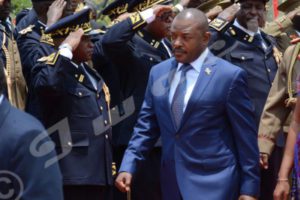
The new Constitution will allow President Pierre Nkurunziza to run for the 2020 elections
The constitution has been completely revised. It will not be like before. Of its 307 provisions, 77 have been amended, 9 new ones included and 3 others dismissed.
The limitation of presidential terms up to two-five year period is now replaced by seven year term of office renewable once. However, the president cannot lead more than two successive terms. He will hand over power with the possibility of standing for elections again later.
Another innovation: the second vice-president is gone. The prime minister, head of the government, coming from the presidential party appears. The president will be assisted by a vice-president from the opposition. Some people protest that saying it is “a post of representation.”
Without touching on ethnic quotas, the new deal allows the adoption of ordinary simple majority laws in parliament. The revision of the Constitution as to it will no longer require the vote of 4/5 of the MPs but rather 3/5.
The terms of office to start from zero
In sum, presidential terms will start afresh with the revision of the Constitution. President Nkurunziza can also claim the post of supreme commander in 2020 and even in 2027 if his party aligns him for the presidential elections.
The current constitution gives the Head of State the latitude to make a choice between referendum or vote in parliament. Some analysts are already leaning towards the first choice. “He still remembers the rejection of the project in March 2014 by MPs. ”
After the failure of 2014, the project was put on hold until the time when the National Commission for Inter-Burundian Dialogue began its work in 2015. It in the end indicated that the majority of Burundians have expressed the wish, among others, to break the limitation of terms of office. President Nkurunziza subsequently decreed the establishment of a technical commission to study the provisions that could be amended.
As a reminder, the political and economic crisis in Burundi began with the announcement of the candidacy of Pierre Nkurunziza for the 2015 elections. “An illegal and illegitimate term,” said the opposition and civil society.
>>Reactions
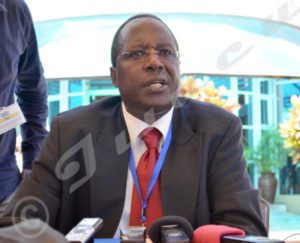 Charles Nditije: “A final stop to the inclusive process”
Charles Nditije: “A final stop to the inclusive process”
According to the president of the opposition coalition in exile, Pierre Nkurunziza does not intend to hand over power. Not only he has just buried the Arusha Agreement but also put an end to the inclusive process. “We ask the international community in general, and East African Community in particular, to express themselves clearly over the issue.” Charles Nditije says two things are involved: either they admit that they are defeated or they tell Burundians to manage by themselves. If they are aware of their responsibility, they should come to their senses and ask for the cancellation of the amendment to the Constitution very quickly.
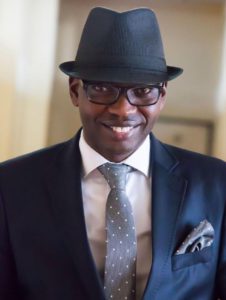 Willy Nyamitwe: “Stop speculating”
Willy Nyamitwe: “Stop speculating”
The senior adviser to the president ensures that to date, CNDD-FDD party has not yet held its congress to designate who will be its candidate in 2020. Ambassador Willy Nyamitwe asks people to stop speculating on what the Bagumyabanga, (members of the ruling party) will decide. He concludes: “It is not yet the moment.”
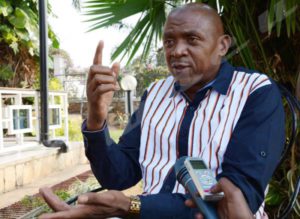 Agathon Rwasa: “I hope CNDD-FDD is not short of candidates”
Agathon Rwasa: “I hope CNDD-FDD is not short of candidates”
The first vice-president of the National Assembly recalls that on August 22, 2015, President Nkurunziza, during his inauguration, proclaimed that it was his last term of office. “He now starts telling people, his own wishes, going back on his word, I find this strange. For Agathon Rwasa, the president should instead assess the12 years of rule and judge conscientiously if it is necessary to continue. He concluded: “I hope CNDD-FDD is structured and is not short of candidates.”
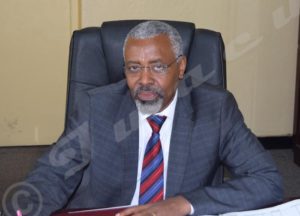 Jean De Dieu Mutabazi
Jean De Dieu Mutabazi
Regarding the likely candidacy of Pierre Nkurunziza, the president of RADEBU party said no intentions should be ascribed to anyone. Jean de Dieu Mutabazi also says the revision of the Constitution follows a legal process. It is also a participatory process, Burundians from all horizons have voted in favor of this amendment.
Analysis
The senior consultant of the International Crisis Group in Central Africa, Thierry Vircoulon contacted by Iwacu, assures that the project over the amendment to the Constitution initiated by the government does not affect what the guarantors of the Arusha Agreement consider as the essence of the Agreement: ethnic quotas as noted in the IFRI Note on Constitutional Revision.
According to the analyst, preserving ethnic quotas but making sure to remain president is the position of compromise of power that will allow him to avoid being subjected to international pressure. What is common in some African countries like Rwanda, Uganda, Togo is the change of amendment to the constitution.
Thierry Vircoulon also indicates that this constitutional revision coincides law with the reality of power and confirms the autocratic power system that prevails in the Great Lakes: “Might is right and not the opposite.”
Written by Agnès Ndirubusa and translated by Pierre Emmanuel Ngendakumana

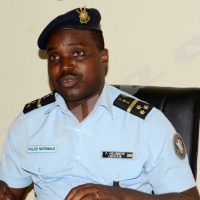
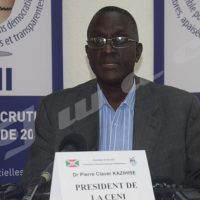
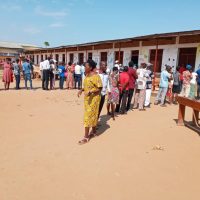
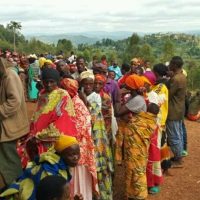
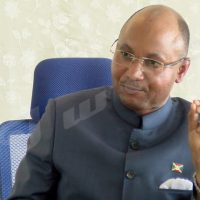













 IWACU Open Data
IWACU Open Data

